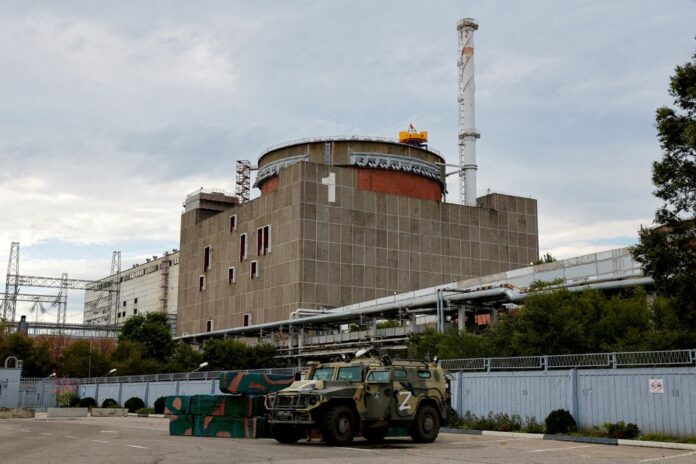The United Nations’ atomic watchdog reiterated demands for Russia to return Europe’s largest nuclear power plant to Ukrainian control amid concern that deteriorating safety could lead to a meltdown, according to Bloomberg.
A majority of the International Atomic Energy Agency’s 35-member board of governors passed a formal resolution of censure against Russia late Thursday. That came a day after Director General Rafael Grossi lauded the country for being the “No. 1 vendor of nuclear technology in the world” and held talks with President Vladimir Putin in Russia’s Sochi.
While the IAEA resolution is largely symbolic, it underscores official concern that Russia’s occupation of the Zaporizhzhia Nuclear Power Plant could threaten a broader revival of atomic power as part of a shift away from carbon energy sources.
“Even a small nuclear accident at Zaporizhzhia could destroy development of the nuclear industry in the world,” Ukraine Energy Minister German Galushchenko said in an interview before the vote. “It is not in anybody’s interest.”
Support for nuclear power has only slowly recovered 13 years after a tsunami triggered the triple meltdown at Japan’s Fukushima Dai-Ichi atomic plant, which is still laden with tens of billions of dollars in clean-up costs. Ukraine is home to history’s biggest nuclear-power disaster, the 1986 meltdown at Chernobyl under the Soviet Union that rendered more than 1,000 square miles uninhabitable.
“Russia has repeatedly failed to take the necessary and prudent steps to minimize nuclear safety and security risks,” US Ambassador Laura Holgate said. “We reiterate our longstanding call on Russia to withdraw its military and civilian personnel from the plant and from all of Ukraine.”
Russia’s state-owned Rosatom Corp. took control over Zaporizhzhia — home to six reactors built to supply a fifth of Ukraine’s electricity — in September 2022, after Russian forces occupied the area during the early stages of the invasion Putin ordered.
Ukraine’s military is fighting to push back Russian forces to regain control over its territory, though its counteroffensive has stalled in recent months. Building a new plant with Zaporizhzhia’s capacity would cost at least $40 billion.
Even after two years of war in Ukraine that have triggered unprecedented international sanctions on other parts of Russia’s economy, the Kremlin continues to dominate key nuclear markets. Rosatom is the biggest exporter of reactors, supplying new projects in Bangladesh, China, Egypt, India, Iran and Turkey. Russia is also the top producer of uranium fuel, which it transports to Europe and the US.
During his trip to meet with Putin, the IAEA’s Grossi said the nuclear energy industry was at “a very important moment.” Amid worldwide military conflict and political fragmentation, there’s “international consensus” that nuclear power needs to grow, he said.
A range of safety issues including frequent cuts to critical external power supplies and low water levels continue to plague Zaporizhzhia. Even as all six reactors are in a state of shutdown, Ukrainian engineers have warned that critical components need to be serviced and fuel must be replaced.
European Union envoys warned Russia against any attempt to restart the plant.
“Zaporizhzhia must remain in a shut down state,” the EU said in a statement. “Russia’s attempts to illegally take ownership of Ukraine’s ZNPP have no validity under international law.”


